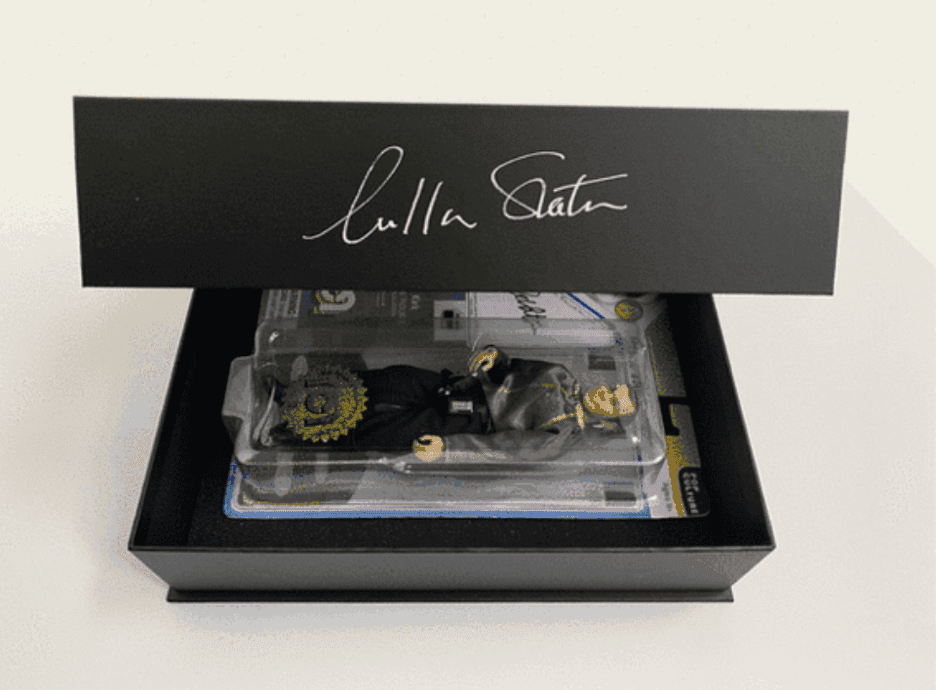 Screenshot from a created by Third Millennia .
Screenshot from a created by Third Millennia .

Claire Wortsman is an IPilogue Writer and a 2L JD Candidate at Osgoode Hall Law School.
Held on May 27, 2021 as part of Gowling WLG’s 2021 Blockchain Webinar Series, NFTs: Why a Picture is Worth a Thousand Bitcoins explored all things non-fungible tokens (NFTs). Speakers included well-known entertainment lawyer Susan Abramovitch, entrepreneurship and technology commercialization expert Thomas Hunter, leader of the Toronto Gowling WLG advertising and regulatory group Daniel Cole, and founder and CEO of Mattereum Vinay Gupta. Gowling WLG partner Michael Garellek moderated the panel.
Physical Assets as NFTs
Gupta gave participants a glimpse of OpenSea, the world’s first and largest NFT marketplace. The front page was populated with ‘traditional’ NFTs: digital art objects, from paintings to sculptures to cartoons. But Mattereum specializes in another kind of NFT: physical assets. Gupta showed participants listings like a signed Captain Kirk action figure and a gold bar.
Listings of this nature are an exciting advancement in the NFT space, and not only for die-hard Star Trek fans and gold collectors. With companies like Mattereum using NFTs to eliminate risks associated with purchasing physical assets online, such as false condition reporting, the possibilities are endless. While NFTs were not designed for the sale of physical assets, vault reports, warranties, and the work of lawyers can build up additional layers of protection and open up the NFT market to a variety of assets by providing a guarantee that the information listed is accurate and building contracts that protect buyers’ and sellers’ rights. For example, since the buyer, seller, website host, and physical asset may be in different locations, an arbitration clause in the contract of sale prevents uncertainty about which laws apply to the sale/use of the NFT and in which venue any dispute would be resolved. In the future, NFTs may even be used to buy and sell real estate.
Digital Assets as NFTs
Abramovitch explained the importance for artists, and agents or marketplaces that sell work on artists’ behalf, to be aware of the IP rights involved in the sale of a digital asset. These rights vary more than those attached to the sale of physical assets. For example, musicians typically wish to retain copyright in their master recordings and musical compositions. But by entering into an agreement with an agency or marketplace to sell their music as an NFT, they grant the right to sell a copy of their master recording or musical composition minted (NFT lingo for created) as an NFT. While the agency or marketplace selling the NFT may allow an artist to retain their copyright, they will likely try to limit the rights an artist retains in order to guarantee the scarcity, and therefore the value, of the NFT.
NFTs and the Law
Hunter provided advice for individuals inspired to start an entrepreneurial venture using NFTs. First, it is essential from a legal and regulatory perspective to define the commercial purpose of the NFTs for sale. Second, individuals must determine who holds the rights over the product in order to mint and sell it as an NFT. Abramovitch touched on this as well, explaining the importance for artists, agents, and marketplaces to understand who is legally authorized to mint and sell something as an NFT, or to transfer this right.
Abramovitch went on to explain that although an artist may own the copyright in a work, they may have granted exclusive licenses. If a recording artist performs a cover song, they cannot give an agent or marketplace the right to mint and sell that recording without the consent of the musical composition’s owner. Similarly, a photographer may own the copyright in their work, but they may infringe the subject’s personality rights by selling the photograph as an NFT without the subject’s permission.
If an existing brand wants to use NFTs in contests or promotions, Cole explained that in addition to copyright, patent, and trademark laws, brands must be aware of advertising, marketing, and contest laws that still apply. He notes that this is an area where the law needs further development to keep pace with technology. For example, section 206(1)(f) of the Criminal Code prohibits contests with purchase requirements where the prize is any goods, wares, or merchandise. Is an NFT a good, ware, or merchandise? This is one of the many legal questions about NFTs that remain unresolved.
For more information on any of the above topics, and many more ranging from the environmental footprint of NFTs/cryptocurrencies to whether an NFT could be used as collateral for a loan, I highly recommend checking out the recorded webinar.

